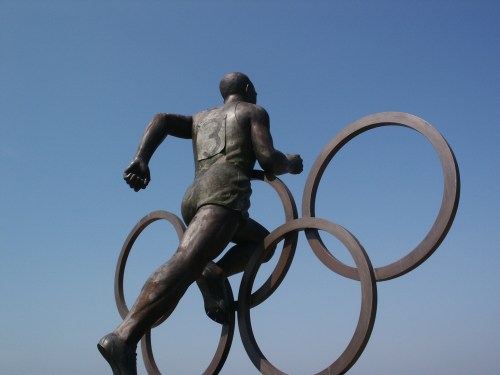As Valentine’s Day bled into Presidents’ Day, I decided to give up any love of politics for Lent. This may be the perfect year for such a sacrifice.
The tragic loss of Justice Scalia over the weekend was quickly followed by the tragic politicization of his passing. There is political work to do, of course, but it was sad, though not surprising, that a presidential candidate had tweeted an opening shot before the Supreme Court had even published an official statement on the loss of their colleague.
This presidential campaign cycle? Wow.
Best I can tell, nine viable candidates remain—two Democrats (Clinton; Sanders), six Republicans (Bush; Carson; Cruz; Kasich; Rubio; Trump), and one lurking independent (Bloomberg). It is possible that Batman or a Muppet or One Direction (campaign slogan alert?) may enter the field, too, given this unpredictable election cycle.
If the presidential field took the field as a baseball team, I’d put Sanders in left (of course), Bloomberg in center (of course), and Cruz in right (of course). Trump would have to play first because it has a #1 in it. Bush and Kasich would necessarily be the (Republican Establishment’s) double-play combination, and Clinton would be a natural at the hot corner given her experience with controversy. I’d put Carson behind the plate (i.e., coming from behind now anyway), and Rubio could take the mound since he is the youngest candidate and may have the most lively arm.
American presidential politics is both fascinating and disturbing, sort of like a roadside accident elicits a peek. Although I vote and appreciate our system, my personal philosophy is best summed up by the late Will D. Campbell (and speaking of baseball): “I watch the political process pretty much as I watch baseball. I have a favorite team, but I know that ultimately it makes no difference who wins. I gave up on politics offering any hope for the world’s problems a long time ago.”
There is a complex thought system that underlies the quote. Just so you know.
Well, I’ll risk oversimplification and explain it this way: I stand with Will D. Campbell and Dr. King in believing that the hope for the world lies in our ability to see one another as brothers and sisters.
Watching our prospective leaders in a democracy speak as they do is a direct reflection of our own hearts, and it seems that we hate each other. Well, maybe not hate (yes, I do mean hate), but at least we resent or despise or fear each other. Surely not family.
I am happy that the inspiring friendship between Justice Scalia and Justice Ginsburg has received some attention this weekend. It is unfortunate that it appears to have zero effect on the presidential campaign.
My best bet as to who will win in November? Nobody. Oh, someone will be elected president of these United States, but in this political climate, I’m not predicting any real winners. I am predicting a lot of angry people. (I’m also predicting a large number of folks will renege on their pledge to move to Canada if ________ is elected.)
It is personally comforting that I do not believe the “hope for the world’s problems” lies in a presidential election, but at the same time, it is troubling that the hope I believe in appears to have zero traction, Scalia/Ginsburg notwithstanding.
I’m going to see everyone as brothers and sisters anyway.





